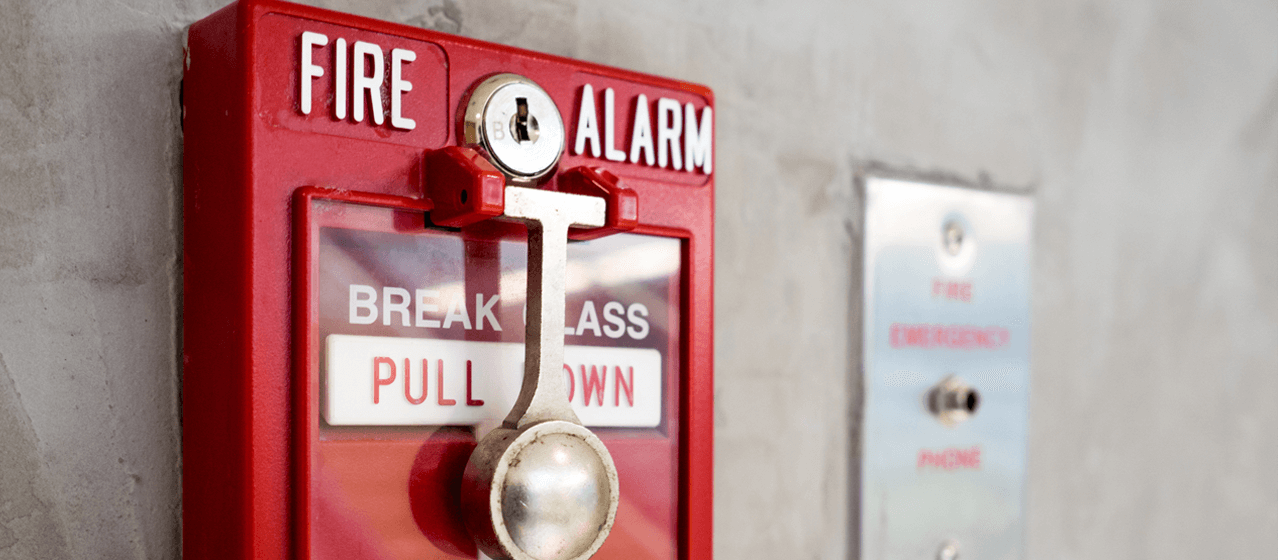The Importance Of Fire Alarm Systems In Warehouses

In vast spaces like warehouses, brimming with goods, machinery, and sometimes even flammable materials, a fire alarm system for warehouse environments becomes crucial. The sheer scale and potential risks associated with warehouses make fire alarms not just an addition but an essential safety measure. Let’s look into the significance of these systems in ensuring the safety of warehouses, their contents, and most importantly, the people working within them.
Warehouses: A Unique Set of Fire Risks
Warehouses stand apart from other infrastructures due to their unique characteristics. These expansive structures often house varied goods, from perishables to electronics, chemicals to fabrics. Each of these materials presents a different fire risk. Additionally, the high racks, compact storage solutions, and sometimes limited accessibility can exacerbate a fire situation if it arises.
Why a Fire Alarm System is Imperative
- Quick Detection in Expansive Spaces: Given the large expanse of most warehouses, fires can spread rapidly before being detected by manual means. A well-calibrated fire alarm system ensures that even a small hint of fire is detected immediately, allowing for swift intervention.
- Protection of Goods: Warehouses often store goods worth significant amounts of money. An uncontrollable fire could lead to extensive financial losses. More than the monetary aspect, certain goods, if combusted, could lead to toxic fumes, further complicating the fire situation.
- Safety of Personnel: While goods can be replaced, human lives cannot. Warehouses are often bustling with workers, and a fire without an immediate alarm can pose a grave threat to their safety.
- Insurance and Compliance: Many insurance providers mandate the installation of certified fire alarm systems for warehouses. Moreover, adhering to safety regulations can also be a determining factor in the legality and operation of the warehouse in many jurisdictions.
The Challenges of Designing Fire Alarm Systems for Warehouses
- Scale and Layout: The sheer size of warehouses makes them challenging. The alarm system must cover vast areas, ensuring that no corner remains unprotected. The high ceilings and deep racks further add layers of complexity to the design.
- Varied Storage Materials: Different goods have different fire signatures. For instance, a paper storage area might have a rapid flame, while a chemical storage might present with dense smoke. The alarm system must cater to these varied risks.
- Environmental Factors: Many warehouses are not climate-controlled, meaning they might be subjected to moisture, dust, or extreme temperatures. The fire alarm system needs to be resilient enough to operate effectively in such conditions.
Key Components of an Effective Warehouse Fire Alarm System
- Diverse Sensors: Given the varied fire risks, a combination of smoke, heat, and flame detectors should be incorporated. This ensures that whatever the nature of the fire, it gets detected promptly.
- Integrated Sprinkler Systems: While the alarm plays a pivotal role in detection and alert, having an integrated sprinkler system ensures immediate first-response action, potentially controlling the fire at its nascent stage.
- Remote Monitoring: Modern fire alarm systems come equipped with remote monitoring solutions. In case of any alert, the concerned authorities or stakeholders can be immediately informed, leading to quicker external intervention if needed.
- Regular Maintenance Alerts: A system is only as good as its maintenance. Modern systems come with self-check features that notify when maintenance or calibration is due.
Maintenance: The Lifeline of the System
A fire alarm system for warehouse settings, given its importance, needs regular maintenance. Dust, wear and tear, or even small malfunctions can compromise its efficiency. Regular checks, professional inspections, and prompt replacements of any faulty components are non-negotiables.
A Holistic Approach: Training and Drills
While technology plays a significant role, the human factor remains irreplaceable. Regular fire drills, training sessions for warehouse staff, and familiarizing them with the alarm system ensure that in case of an actual fire, panic is minimized, and an organized evacuation or intervention can take place.
Prioritizing Safety with Advanced Fire Alarm Solutions
In the dynamic realm of warehouse management, prioritizing safety has become paramount. Embracing modern fire alarm technologies not only ensures compliance with safety standards but also fortifies warehouses against unforeseen fire incidents. By integrating state-of-the-art detection and alert mechanisms, warehouses can be safeguarded more effectively, ensuring that both the stored assets and the invaluable human resources within these vast spaces remain protected from the devastating consequences of potential fire threats.
An Investment in Safety
Considering the unique challenges and invaluable assets housed within warehouses, investing in a robust fire alarm system isn’t just an operational requirement – it’s a moral imperative. Such systems not only protect tangible goods but play a pivotal role in safeguarding human lives, ensuring timely intervention, and minimizing potential damages.
With technological advancements, the capabilities of fire alarm systems are continuously expanding, making them more efficient and reliable. For anyone involved in the warehousing business, understanding, installing, and maintaining these systems should be at the top of their safety checklist.
